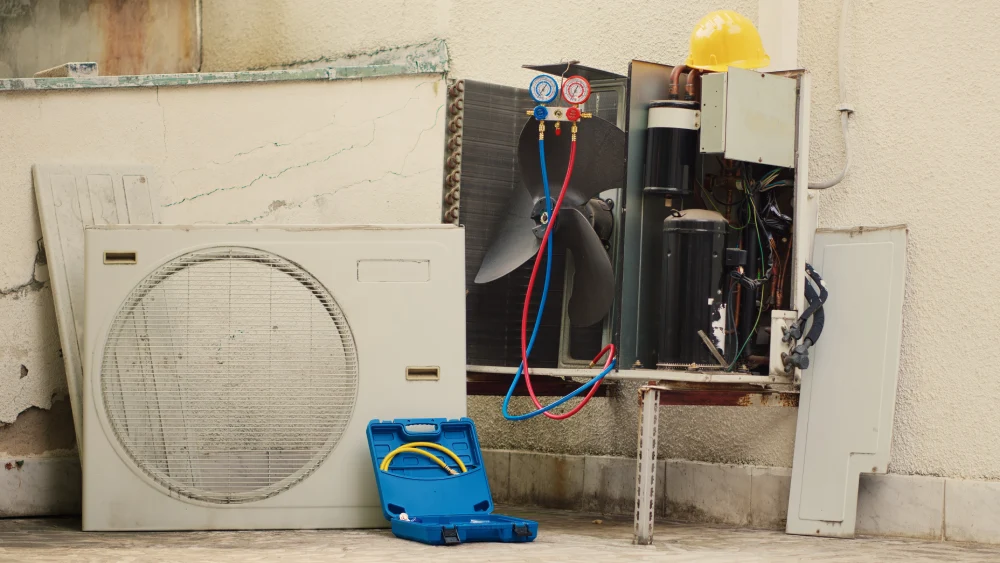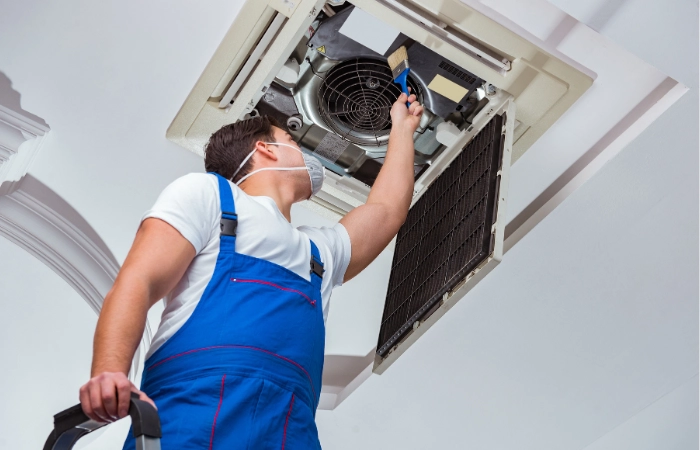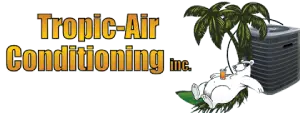In the peak of summer heat or during an unexpectedly warm day, air conditioning systems are essential for maintaining a comfortable indoor atmosphere in both homes and commercial spaces. However, when these systems experience malfunctions or cease to function, the immediate concern often revolves around the potential need for a costly and disruptive replacement.
Is a complete overhaul always necessary, or can air conditioning systems be repaired without resorting to full replacement? This detailed guide aims to explore this topic, providing property owners and facility managers with the necessary information to make informed decisions regarding their cooling systems.
What Are the Components of an Air Conditioning System?
Understanding the integral parts of your air conditioning system is crucial before exploring repair versus replacement scenarios. Typically, both residential and commercial air conditioning units comprise essential components: the compressor, condenser coils, evaporator coils, air handler, and thermostat. Each part plays a vital role in the cooling process, and issues can arise in any of these areas, affecting the overall performance.
Common Air Conditioning System Issues and Their Resolutions
Many air conditioning troubles can indeed be rectified without necessitating a complete system replacement. Below are common problems encountered in both residential and commercial settings, along with potential solutions:
• Fan Issues
The fan in an air conditioning unit, crucial for moving heat from the interior to the exterior, may encounter issues such as failing to run properly, which can significantly impact airflow and system efficiency. These problems can typically be resolved by lubricating the fan motor, replacing a damaged fan motor, or removing obstructions that hinder the fan’s operation, ensuring that regular maintenance checks are conducted to prevent such issues from arising.
• Drainage Problems
When the AC unit’s condensate drain becomes clogged with debris like dirt, dust, or algae, it can lead to improper drainage, potentially causing system malfunctions or water damage. Consistent cleaning and maintenance of the drain line can prevent these issues, while severe blockages might require professional services to restore proper function and prevent damage.
• Sensor Issues
Air conditioning systems often rely on sensors to measure air temperature, but if a sensor is dislodged or malfunctions, it can lead to erratic behavior or constant cycling of the system. Fixing this issue involves adjusting or replacing the sensor, which can help restore normal operation without significant expense.
• Lack of Maintenance
Neglecting regular maintenance can lead to severe efficiency losses and early system failures as small, manageable problems worsen over time. It’s advisable to schedule regular professional maintenance to avoid such issues, which can identify and rectify minor problems before they escalate, thus extending the lifespan of the system.
• Incorrect Sizing
An air conditioning system that is not appropriately sized for the space it serves can lead to various problems, like inefficient cooling, increased system wear, and temperature inconsistencies. Addressing this issue might involve significant adjustments or system replacement, so professional consultation is essential to determine the most effective solution.
• Natural Wear and Tear
Components within an AC system, like belts and bearings, naturally wear out over time, leading to reduced performance or total system breakdown. Replacing these worn components can restore system functionality, highlighting the importance of regular inspections to catch and address wear and tear promptly.
• Control System Failures
Failures within the air conditioning control system, including thermostats and control boards, can occur due to power surges, depleted batteries, or aging. Repairing or replacing the affected components can typically resolve these issues, with the option of upgrading to a modern thermostat to enhance overall system efficiency and control.
• Aging Ductwork
In older buildings, the ductwork can deteriorate over time, leading to leaks, blockages, or poor insulation, which can all significantly impact the efficiency and effectiveness of the air conditioning system. Repairing or replacing aging ductwork can improve air quality, enhance system performance, and reduce energy consumption, avoiding the necessity for a complete AC system overhaul.
• Compressor Issues
The compressor, a critical component of the air conditioning system, facilitates the refrigerant’s flow and plays a vital role in the cooling process. Issues such as overheating, wear, or electrical faults can lead to compressor failure, significantly impacting the system’s ability to cool.
These problems may require complex repairs or part replacements, and in some cases, they can be indicative of deeper system issues. Regular maintenance can help prevent compressor problems, including checking refrigerant levels and ensuring proper electrical connections.
Frequently Asked Questions

What signs that the air conditioning system needs repair?
Signs that your AC system may need repairs include unusual noises, reduced airflow, higher than your usual energy bills, inconsistent temperatures, and the system turning on and off more frequently than normal. Taking action on these signs can prevent further damage and guarantee your AC unit continues to work effectively.
Is it worth repairing an old air conditioning system?
Deciding whether to repair an old air conditioning system depends on various factors. Consider the age of the system, its overall condition, and the extent of the needed repairs. If the system is approaching the end of its lifespan or requires frequent repairs, investing in a new, more efficient system could be more cost-effective in the long run.
How much do HVAC repairs cost?
On average, the HVAC repair cost ranges between $80 and $150 per hour. However, emergency repairs during extreme weather conditions can incur higher hourly labor rates. Emergency house calls in such situations may cost between $150 to $275 per hour.
Conclusion
While air conditioning issues can be daunting, many problems can be resolved without the need for a complete system replacement. By grasping the common issues and their solutions, you can extend the life of your system and improve its efficiency. Moreover, regular maintenance is key to avoiding major repairs and ensuring your system’s longevity.
If you’re experiencing issues with your air conditioning system or want to ensure it’s running at peak efficiency, don’t hesitate to contact Tropic Air Conditioning Inc. We offer professional maintenance and repair services to keep your residential or commercial space cool and comfortable. Call us today to schedule a service.




